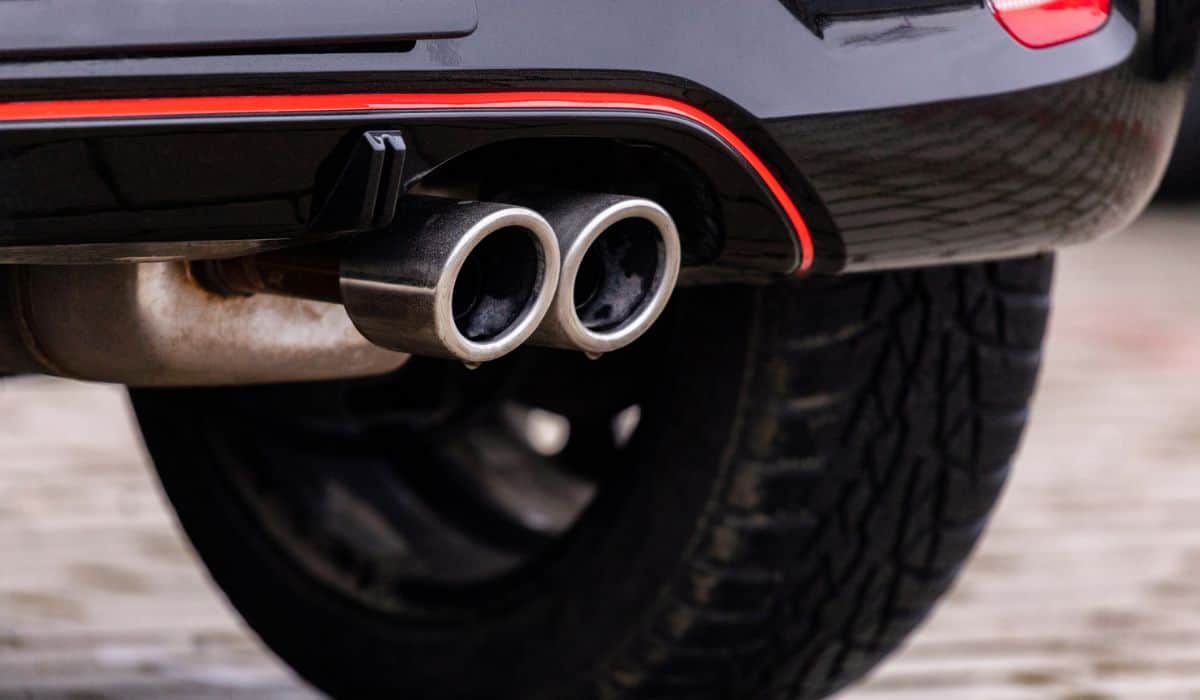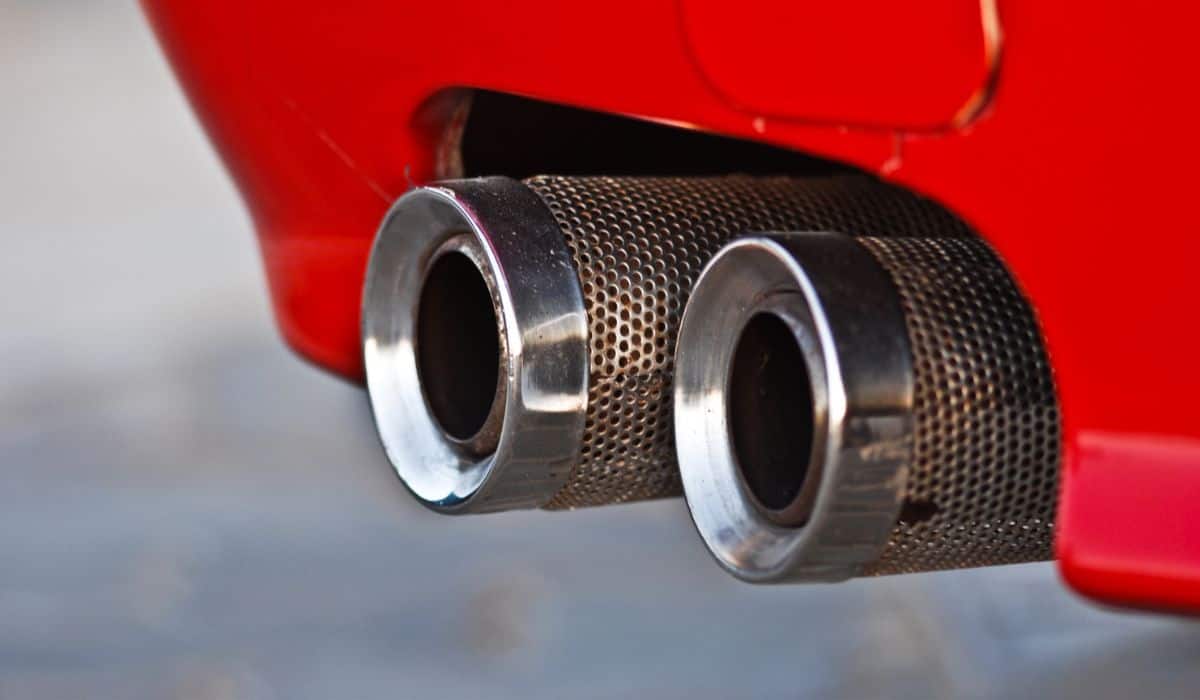Aftermarket Exhaust: Does It Damage Your Car Engine?
Upgrading a vehicle can improve its appearance, performance, fuel economy, and more. Aftermarket exhaust systems are a popular upgrade and reasonably easy to install. But can an aftermarket system damage your car’s engine?
Aftermarket exhaust upgrades won’t damage your engine. The average installation allows the exhaust to flow more easily, improving the efficiency. However, an aftermarket exhaust may decrease the car’s resale value, affect the warranty, or cause legal issues, depending on how and where it’s done.
So, if you’re installing a new exhaust system, you don’t need to worry about the engine. But there’s a lot to understand about aftermarket exhaust modifications, including the advantages, disadvantages, and costs. Let’s take a look at everything you need to know to get started.
What Is Aftermarket Exhaust?

The term’ aftermarket exhaust’ refers to a modification to the entire exhaust system — including the pipes, catalytic converter, and muffler. These are popular modifications that can improve engine performance, fuel economy, and the sound of the vehicle.
Aftermarket or performance exhausts allow gas in the engine to escape more easily. The smooth-flowing exhaust lets the fuel/air leave the combustion chamber faster while new fuel/air is burned to create more power.
There are several advantages to replacing the stock exhaust system on a vehicle. That said, it can void the car’s warranty, and adjusting the system may cause problems if you aren’t experienced.
Types of Aftermarket Exhaust Systems
There are a few different types of aftermarket exhaust systems you can purchase, including the following:
- Axle-Back: This modification replaces the stock exhaust system, including components after the rear axle, like the muffler, tailpipe, and tips. Axle-back systems prioritize the sound of the engine and are relatively easy to install.
- Cat-Back: This modification replaces the stock exhaust system starting at the catalytic converter and ending at the muffler. Cat-back exhaust systems increase air flow, decreasing the pressure on the engine and improving fuel economy.
- Header-Back/Full Exhaust: This modification replaces the entire stock exhaust system, from the header collector to the tailpipes. Full exhaust replacements may increase engine performance, fuel economy, and pressure reduction ratings.
Each aftermarket exhaust modification provides varying levels of performance improvements, depending on the vehicle. Some cars will show limited gains, while other models will display significant improvements.
Why Get an Aftermarket Exhaust?
Installing an aftermarket exhaust system can be time consuming, expensive, and labor intensive. So, why would you go through the trouble of installing one? Let’s take a look at some of the benefits below.
Increased Performance
Although it’s not always notable, aftermarket exhaust systems can increase the performance of your car’s engine. The modification won’t provide as much power as a turbocharger, but it can add several horsepowers to some vehicles.
Aftermarket systems reduce back pressure, which can stifle an engine if it’s too high. The upgrades also help remove emissions more efficiently, which creates more room for fuel/air intake.
Improved Fuel Efficiency
Aftermarket exhaust systems can have a slight impact on the fuel efficiency of a vehicle, depending on the installation. The impact won’t be dramatic and is more notable with full exhaust replacements than Cat-Back or Axle-Back modifications.
Enhanced Sound
Aftermarket mufflers can dramatically change the sound of an engine, depending on the installation, vehicle, and other factors. Many products can make the engine sound deeper and more robust. That said, this is purely cosmetic and may not be important to some consumers.
Can Aftermarket Exhaust Damage Your Engine?
It’s highly unlikely that an aftermarket exhaust system will damage or negatively impact your engine.
Aftermarket exhaust modifications may impact the engine’s exhaust valves, but this is extremely rare. The average exhaust installation allows the exhaust to flow more easily, which improves the efficiency at the cost of sound.
That said, there are a few different disadvantages to be aware of when installing an aftermarket exhaust system.
Insignificant Performance Increases
Aftermarket exhaust upgrades don’t offer significant performance increases for some vehicles. Some models require aftermarket ECU or reflash to maximize efficiency.
For example, adding an exhaust upgrade to a vehicle with a small displacement engine may not result in notable performance gains.
Legal Issues
Some upgrades can cause a car to become illegal in certain locations.
Aftermarket exhaust systems, especially budget projects, can cause issues with vehicle registration. In other instances, you may violate Land Transportation Office (LTO) regulations due to sound levels.
Emissions are another problem, as certain modifications remove the catalytic converter, which is illegal in certain states. Be sure to check with your local laws and regulations before proceeding.
How Much Do Aftermarket Exhaust Systems Cost?
The cost of an aftermarket exhaust system ranges between $300 and $1,200, depending on the installation, type of modification, parts, labor, and other factors.
Nearly all aftermarket exhaust manufacturers offer four types of parts:
- Axle-Back: These modifications cost between $300 and $1,200, depending on the steel type, thickness, and muffler quality.
- Cat-Back: These upgrades typically cost the same as Axle-Back, depending on the steel type, thickness, and muffler quality.
- High-Performance Mufflers: High-performance mufflers cost between $75 and $300 on average. The price depends on the materials and the steel type and thickness.
- Exhaust System Tips: These materials cost $25 to $150 per tip. Nearly all Cat-Back and Axle-Back upgrades in a high-performance exhaust tip. Building a customized system will require Exhaust system tips.
Remember that these prices are only estimates and don’t include labor costs. Your mileage will vary depending on the vehicle, installation, exhaust type, market, and more.
Will an Aftermarket Exhaust Decrease Your Car’s Value?

Aftermarket systems provide a nice aesthetic and can improve performance. But, in many cases, aftermarket exhaust upgrades decrease the resale value of a vehicle.
Going overboard with the size and sound may decrease the value for the average buyer. Many buyers are turned off by loud engines and aftermarket upgrades. You may need to market your vehicle to enthusiasts in some cases.
That said, the decrease in value will depend on the vehicle, market, installation, and several other factors. Be sure to consider the resale value and longevity of your car when deciding on an exhaust upgrade.
